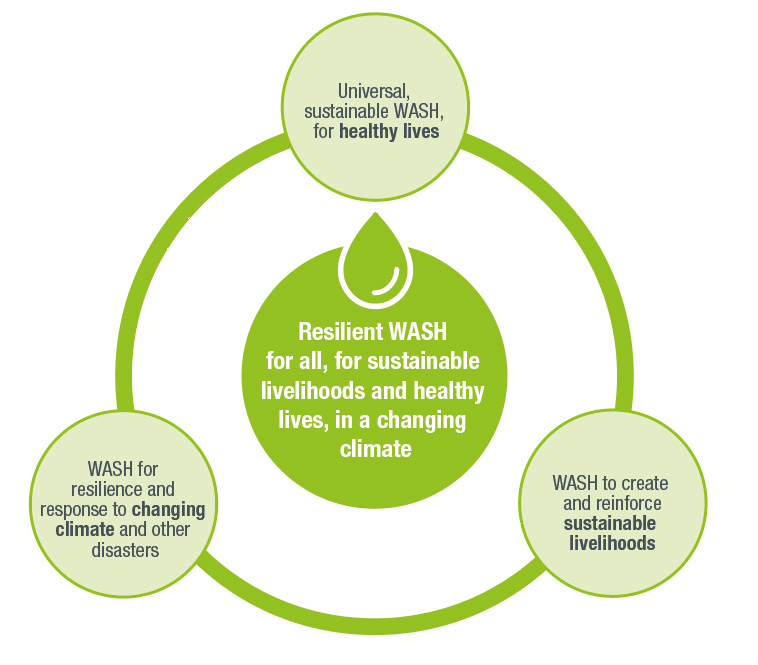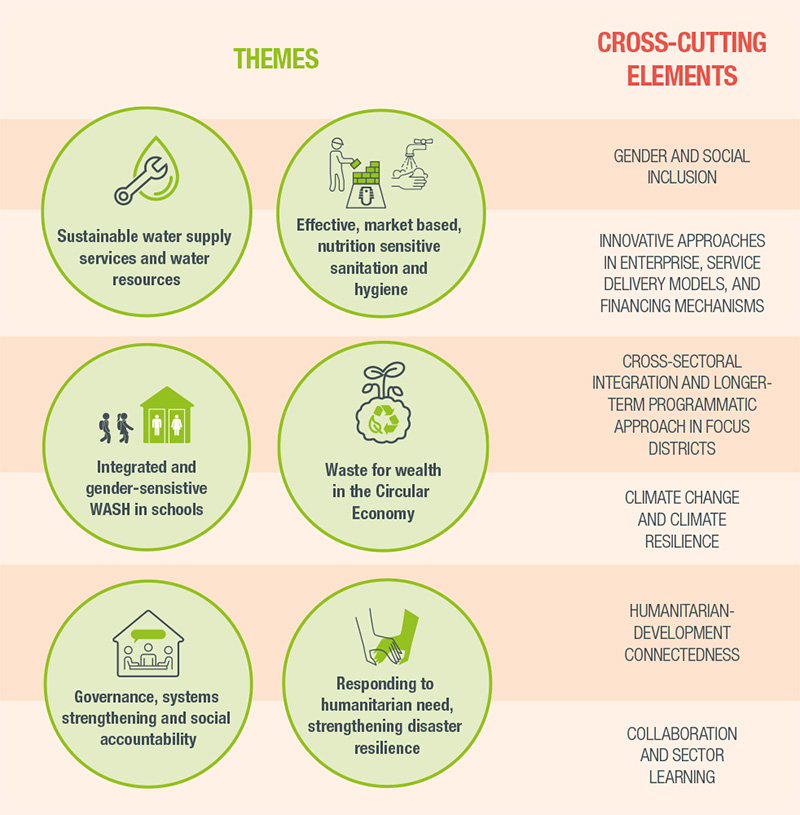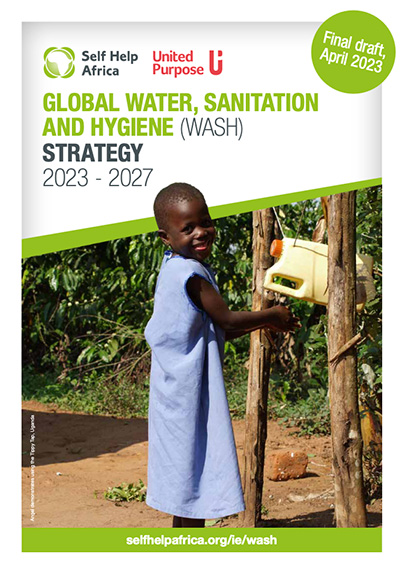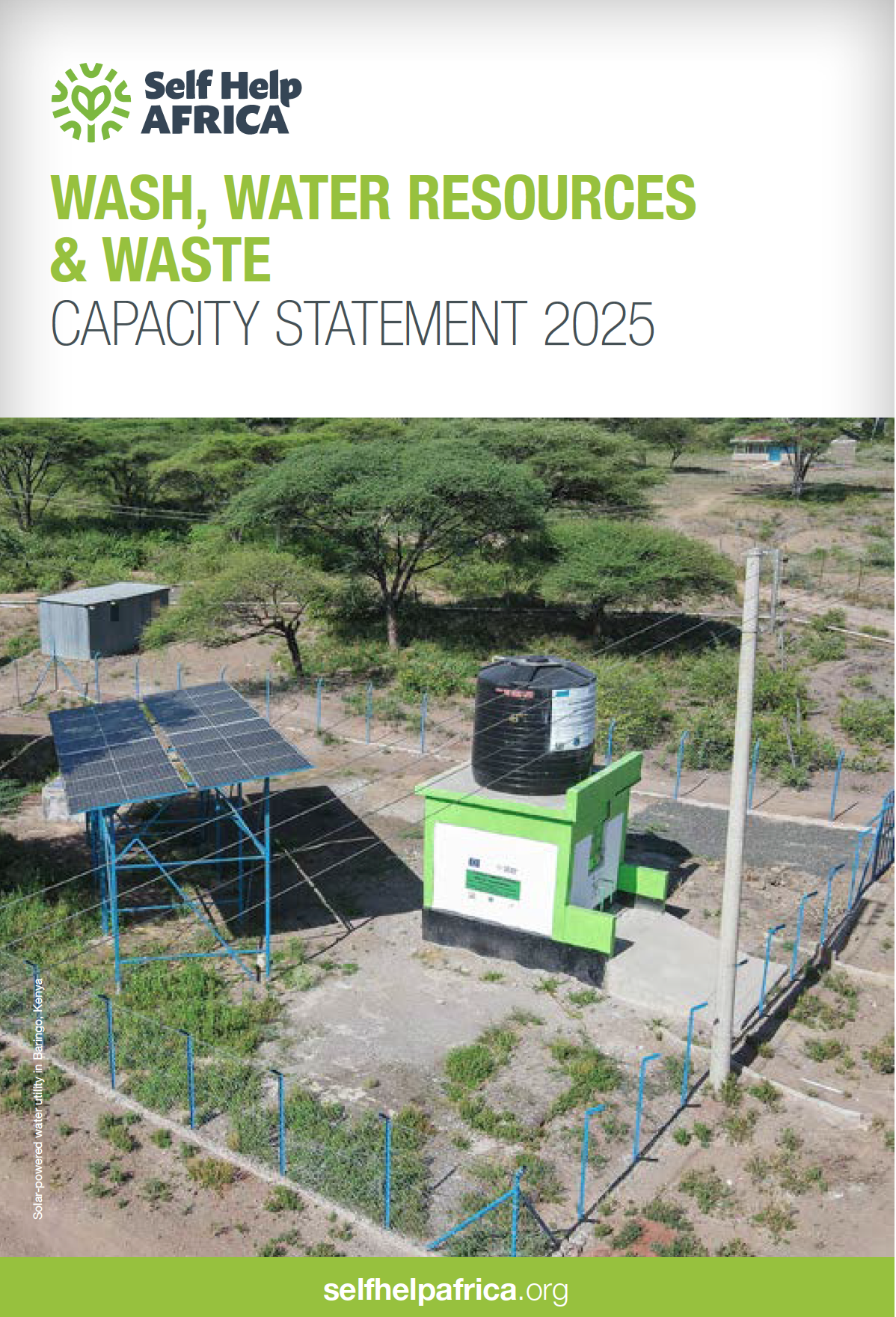Water, sanitation and hygiene (WASH)
WASH for healthy lives, livelihoods, and resilience
In the past 15 years we have reached more than five million people with safe water access, and more than one million households have built toilets following our interventions. WASH reinforces our mission by improving the health, livelihoods and resilience of the communities we serve.
Our WASH vision and objectives
We believe everyone should be able to access resilient water, sanitation and hygiene services that help support sustainable livelihoods and healthy lives in a changing climate.
With this in mind, our three interconnecting objectives for WASH are:
- Contributing to universal, sustainable WASH services and practices in communities and public institutions, leading to healthy lives and contributing to the targets of UN Sustainable Development Goal 6 (ensuring access to water and sanitation for all)
- Reinforcing and creating sustainable livelihoods from WASH value chains and using WASH ‘outputs’ as inputs for sustainable agriculture
- Strengthening communities’ resilience to a changing climate and other shocks and disasters, and responding to those disasters where appropriate and needed

Our WASH approach
During the next five years, we'll help at least two million people improve their sustainable access to safe drinking water and at least basic sanitation services.
To achieve our WASH vision and objectives, we'll focus on six interconnecting themes.
WASH THEMES
We work in diverse contexts. In each country we have specific WASH-sectoral (and wider organisational) niches, comparative advantages and focus areas. This is why the themes we focus on will vary between countries and we do not seek to work across all themes in all countries.
Our WASH work in action
We take a ‘community-led total sanitation’ approach, supporting communities to identify and solve their own sanitation problems. We use sports, music and communication technologies to share important health messages.
To maximise impact, we integrate our WASH approach into our broader work with communities. For example, nutrition messages are often included in our WASH behaviour change activities, while our WASH in schools programme can have a nutrition component, such as with our school nutrition gardens in Bangladesh.
Strengthening WASH systems
Working with local governments, we identify and overcome barriers to sustainable, inclusive, area-wide WASH services.
In Nigeria and Malawi, we have worked with local authorities to develop strategic, district-wide WASH plans. In Mozambique, we have given technical support and quality assurance to donors and the Government. In Nigeria, our long-term support to the Government’s open defecation free (ODF) strategy has benefited more than 1.7 million people and led to the first Local Government Area in the country becoming ODF.
Market-based approaches are increasingly key to our WASH work, too. The aim is to help increase access to WASH products and services, and create WASH-related jobs.
Increasing WASH inclusion and social accountability
In many countries, there are still gaping disparities in access to adequate WASH services. To help address that, we build processes that hold governments and WASH service providers to account. We also work with communities seeking to advocate better access to WASH services. In Brazil, for example, we’re supporting communities in low-income urban areas through rights-based approaches – sharing our knowledge and expertise so they then feel better able to advocate access to the services they need.
Gender equality is at the heart of all our WASH work. Access to water and sanitation is essential to women and girls’ social and economic development. We’ve improved gender-friendly WASH facilities in schools. Our work on tackling taboos and practices in menstrual hygiene management, through local sanitary pad manufacture, behaviour change work and community dialogue, has benefitted thousands of women and girls, including in Malawi and Nigeria.
We are a proud member of key WASH networks such as the Rural Water Supply Network and the Sustainable Sanitation Alliance. We also serve on the steering committee of the UK WASH Network.





